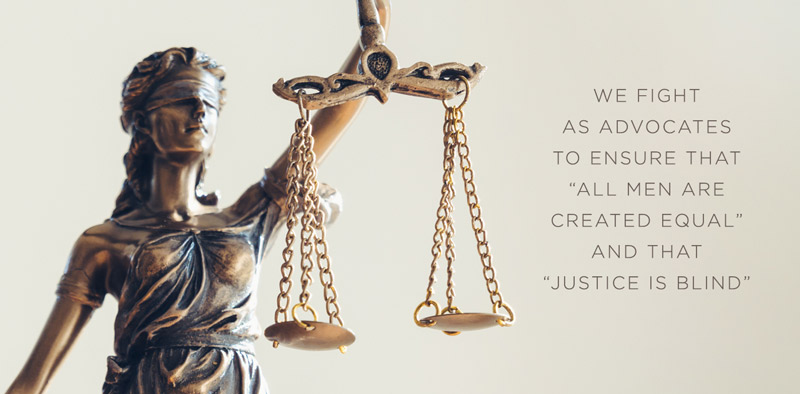
As trial lawyers, there have been many times when we represent black clients in court and we stand before “a jury of their peers.” Those peers (and the judge), however, often look nothing like our clients. We fight as advocates to ensure that “all men are created equal” and that “justice is blind”. Unfortunately, we know and understand these aspirations most definitely are not always the case. Even if those judges and jurors believe they have no conscious bias toward our black client, it is the unconscious bias that scares us the most.
In light of recent events and public unrest, our Commonwealth’s Highest Court (Supreme Judicial Court) publicly committed “to do more than express our feelings of sadness and anger” that “black lives are not treated with the dignity and respect accorded to the white lives”.
As lawyers who advocate for black clients daily, we now have the judges public commitment “to root out any conscious and unconscious bias in our courtrooms; to ensure that the justice provided to African-Americans is the same that is provided to white Americans; to create in our courtrooms, our corner of the world, a place where all are truly equal.”
We are long past days when we, as a community, should have ferreted out bias from our system and our lives. Sadly, we all know too well that has not been the case.
The SJC aptly quotes Dr. Martin Luther King, Jr. who said “injustice anywhere is a threat to justice everywhere. We are caught in an inescapable network of mutuality, tied in a single garment of destiny. Whatever affects one directly, affects all indirectly.”
Maybe if we make such a public commitment to change, it will become a reality. When we announce such commitments publicly, we are accountable.
We pledge to root out unconscious bias and to fight for the day when our system and society truly delivers blind justice.
Letter from the Seven Justices of the Supreme Judicial Court to Members of the Judiciary and the Bar (June 3, 2020)
Click here to read the letter from the Seven Justices of the Supreme Judicial Court.
